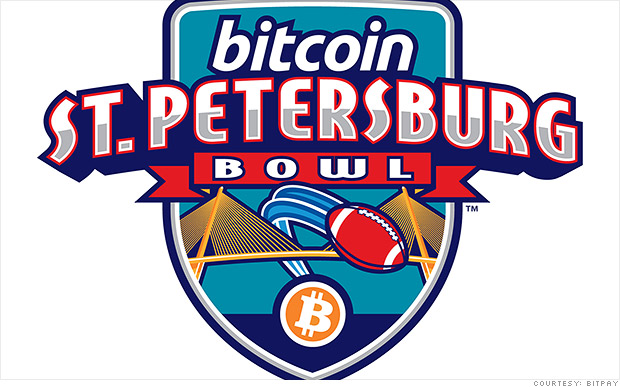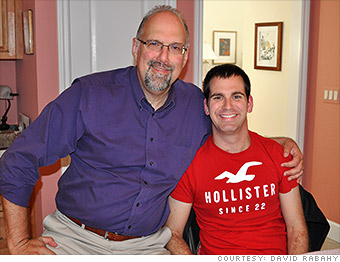Bitcoins are stored in a “digital wallet,” which exists either in the cloud or on a user’s computer. The wallet is a kind of virtual bank account that allows users to send or receive bitcoins, pay for goods or save their money. Unlike bank accounts, bitcoin wallets are not insured by the FDIC.
Wallet in cloud: Servers have been hacked. Companies have fled with clients’ Bitcoins.
Wallet on computer: You can accidentally delete them. Viruses could destroy them.
Anonymity
Though each bitcoin transaction is recorded in a public log, names of buyers and sellers are never revealed – only their wallet IDs. While that keeps bitcoin users’ transactions private, it also lets them buy or sell anything without easily tracing it back to them. That’s why it has become the currency of choice for people online buying drugs or other illicit activities.
Future in question
No one knows what will become of bitcoin. It is mostly unregulated, but that could change. Governments are concerned about taxation and their lack of control over the currency.
Bitcoin prices have surged to a high of $1,242. That makes the virtual currency only slightly less expensive than an ounce of gold.
Here's why Bitcoin matters
By Jose Pagliery @Jose_Pagliery March 7, 2014: 12:38 PM ET
NEW YORK (CNNMoney)
The world is finally paying close attention to Bitcoin, but people are more focused on its creator than the power behind the revolutionary digital currency.
They shouldn't be. Whether or not Dorian Satoshi Nakamoto, a 64-year-old retired engineer living quietly in California, is the father of Bitcoin is not really the point.
Bitcoin matters because it has governments and major banks scared stiff. It presents a currency that cuts them out of the picture.
China restricted banks from using Bitcoin late last year. In February, Russia's top prosecutor declared that Bitcoin and all anonymous payment systems are illegal.
For now, the United States is letting the experiment move forward. But New York state's top financial regulator has already detailed plans to regulate bitcoins sometime this year.
Banks see the writing on the wall too. In a quiet move last year, JPMorgan Chase (JPM) filed a patent for a Bitcoin-like payment system -- digital wallets, anonymity and all.
"We have finally figured out how to send value over the Internet - faster, cheaper and more securely. We are not going to 'unlearn' that," said Jinyoung Englund, spokeswoman for the Bitcoin Foundation, the currency's top advocate.
Forget money made of paper and metal. Bitcoin lives as a computer code and is created and traded electronically.
Of course, that does raise some legitimate concerns. Your entire account could be wiped out if it's hacked or your computer is lost or destroyed. Remember the British man who threw away a hard drive with $9 million in bitcoins and lost it in a massive garbage dump?
But it also means that you can transfer money from one side of the globe to the other in a flash. No fees from banks. And because bitcoins are generated by an algorithm, there are no government central banks that can induce inflation and devalue the money.
Why Bitcoin will recover from Mt.Gox
Still, Bitcoin is having a rocky start.
Bitcoin exchange Mt.Gox recently filed for bankruptcy protection in Japan after losing an estimated $400 million worth of customers' bitcoins.
Because of that, former bank regulator and current Boston University finance professor Mark Williams calls Bitcoin a destructive -- not disruptive -- technology.
"At this point, it's a virtual experiment being tested in the real world, and we're seeing lots of weaknesses," he said
Dealing with a purely electronic currency that's barely regulated also means that exchanges and Bitcoin storage centers like Mt.Gox can easily lose massive amounts of customers' assets to software bugs or hackers. And the victims aren't protected.
What's more, speculation about Bitcoin causes its value to sometimes rise or fall more than 10% on any given day. Brandeis International Business School professor Catherine Mann doubts Bitcoin will have a future unless it becomes more stable.
"The highly volatile price of Bitcoin undermines its use as a means of exchange," she said.
Bitcoin's current shortcomings are natural. It's an evolving industry led by tech entrepreneurs with zero financial experience. But it could spark a different approach to money, one of the most fundamental aspects of human interaction. And it's already given birth to other cryptocurrencies, such as Litecoin, Dogecoin and others.
That's why in the grand scheme of things, identifying its creator is important -- but not pivotal. Besides, the Bitcoin system is now run by computer developers who donate their time.
"We all agree that the Satoshi Nakamoto was a brilliant designer," said Englund. "However, Bitcoin's inherent [decentralized] design makes knowing who Satoshi Nakamoto is a moot point because over time, the people who use the protocol and contribute to the code become "Satoshis" themselves."


Not I. As a retired person I value the safety of my money.
ReplyDeleteThis comment has been removed by the author.
ReplyDeleteDeletion above was for an addition and a correction.
ReplyDeleteThis is a subject with a lot of facets and one people will have to consider carefully but I don’t think many people really understand enough about the differences between hard and fiat currency or for that matter, competing currencies, to understand where we are headed.
Firstly, make no mistake, bitcoin and all of its virtues as a stateless, secure form of purchase will not be allowed to stand. It will be banned by the same people whose comments on this very forum refuse to allow private banks to issue currency be it fiat or hard... By the same people who applauded when the FBI and Secret Service raided and confiscated Ron Paul Dollar coins made out of copper, silver and gold because they “looked similar to U.S. coins.” Apparently they were stamped with the words: ‘Trust In God’ and ‘U.S.A’. This anti competition mantra is supported and guided by central bankers all over the world.
Secondly is the motive for the trend to move to a digital currency. The history of our move first to a fiat money, to the credit card and then to boundless credit has been pushed, as always by the central banking system. Of course central banks want this next step, no more printing, distribution or maintenance. Also it will be possible to track every transaction that is made and to completely remove all access to any funds with the flick of a digital switch. While that in itself is bad enough from a privacy point of view, it can also mean that people change their spending. Some people might not spend money on things that they do not want to be linked to. This can be a donation or a purchase of a pregnancy test.
Folks who believe in both hard currency and competing sources are shouted down by apologists for the central bankers and pompom wave for the support of MMT with little understanding of either. We saw on another thread a post that talked about the ‘new’ distorted version of the definition for the world inflation… much misunderstanding… much manipulation to achieve it.
As for the digital currency itself, Bitcoin appears to be secure and manipulation proof but as we have seen time and time again anything created in software is 100% secure and can’t be undone or corrupted. They assure us bitcoins will be capped at 21million but the Federal Reserve has always had the right to resort to ‘extraordinary’ measures. Where did they get the 21 million figure from anyway?
For a digital currency to work 100% of the population, young and old, urban and rural would have to be digitally connected… no mean feat in the outback of Australia, the far reaches of the Canadian tundra or for that matter the many dead cell phone areas that exist in US towns and cities.
Right now the fees for transacting in bitcoin, if you can are very high even though all bitcoin sales are final… The anonymity of the transaction would make returns impossible. As with credit purchases it makes budget tracking more difficult for some people resulting in overspending.
Beyond that, you can never be completely free of your tether to the bank. I keep in a safe 2 months of cash funds that will meet all of my bills and purchase food and fuel. While I am in the unique position of living on US dollars in the UK and must use ATM and bank transfers, I have always maintained a cash in hand approach to banking as it is portable, universal and if I wish, untraceable… digital currency would eliminate that last vestige of independence an individual has outside of the banking system to initiate a private transaction.
Untraceable currency is the dream-come-true for drug lords, arms traffickers and others engaged in illegal trade and tax evasion. Make no mistake, that is the real reason for bit coins.
ReplyDeleteDigital Currency is a dream-come-true for central bankers and governments. I’m not so sure that bitcoin itself was conceived in deceit. Many people have talked about competing currencies that are not controlled by governments or their partners in crime, central banks. No doubt many criminal elements saw it is yet another avenue to move illegal business, but I don’t think that the bigger players have much to worry about as their appear to be banks quite willing to launder their money and governments who won’t put the bankers in jail… hint: you don’t have to travel far or leave the US to find one.
DeleteDigital Currency is being pushed by some very influential people… damned the consequences.
http://www.gatesnotes.com/2015-annual-letter?WT.mc_id=01_21_2015_DO_com_domain_0_00&page=3&lang=en
http://www.infowars.com/bill-gates-pushes-cashless-society/